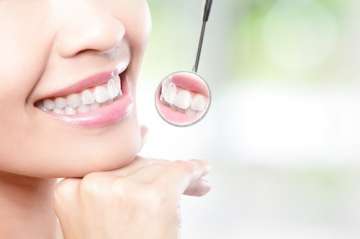Common painkiller ibuprofen and other nonsteroidal anti-inflammatory drugs (NSAIDs) alone or in combination with acetaminophen are better at easing dental pain, than opioids, said researchers. While using opioids help manage pain, they also run the risk of misuse or abuse, that can cause serious harm, including addiction, overdose and death.
According to the National Institutes of Health, each day, more than 115 Americans die as a result of an opioid overdose. "What we know is that prescribing narcotics should be a last resort," said Anita Aminoshariae, Associate Professor at the Case Western Reserve University in the US.
"No patient should go home in pain. That means that opioids are sometimes the best option, but certainly should not be the first option," she added.
The study showed that opioids are not among the most effective -- or longest lasting -- options available for relief from acute dental pain.
For adults, a combination of 400 milligrams of ibuprofen and 1,000 milligrams of acetaminophen was superior to any opioid-containing medications.
"The best available data suggests that the use of nonsteroidal medications, with or without acetaminophen, offers the most favourable balance between benefits and harms, optimising efficacy while minimising acute adverse events," Aminoshariae said.
The results, featuring in the Journal of the American Dental Association, evaluated the safety and efficacy of dozens of pain-relief options from more than 460 published studies.
Opioids and their drug combinations were found to account for the most adverse side effects -- including drowsiness, respiratory depression, nausea/vomiting and constipation -- in both children and adults.
Citing the American opioid epidemic, Aminoshariae said that health-care providers should take heed of the findings.

